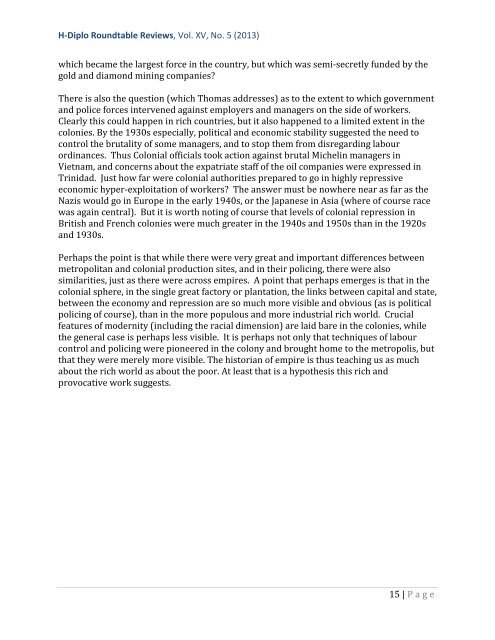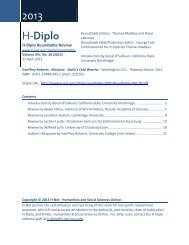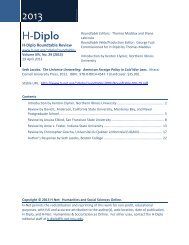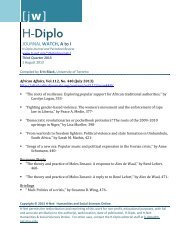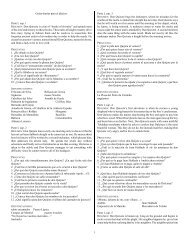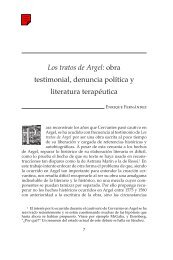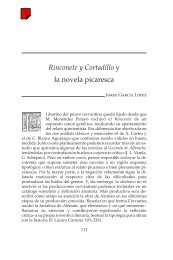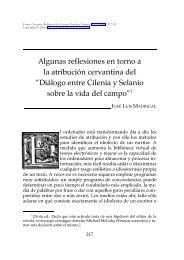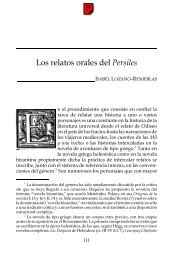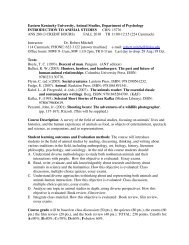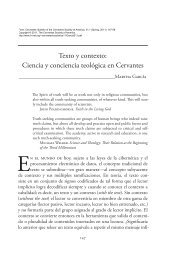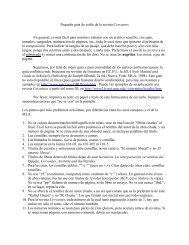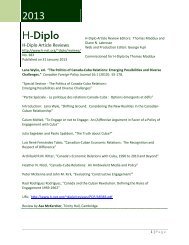H-Diplo Roundtable on Martin Thomas. Violence and ... - H-Net
H-Diplo Roundtable on Martin Thomas. Violence and ... - H-Net
H-Diplo Roundtable on Martin Thomas. Violence and ... - H-Net
You also want an ePaper? Increase the reach of your titles
YUMPU automatically turns print PDFs into web optimized ePapers that Google loves.
H-<str<strong>on</strong>g>Diplo</str<strong>on</strong>g> <str<strong>on</strong>g>Roundtable</str<strong>on</strong>g> Reviews, Vol. XV, No. 5 (2013)<br />
which became the largest force in the country, but which was semi-secretly funded by the<br />
gold <strong>and</strong> diam<strong>on</strong>d mining companies?<br />
There is also the questi<strong>on</strong> (which <strong>Thomas</strong> addresses) as to the extent to which government<br />
<strong>and</strong> police forces intervened against employers <strong>and</strong> managers <strong>on</strong> the side of workers.<br />
Clearly this could happen in rich countries, but it also happened to a limited extent in the<br />
col<strong>on</strong>ies. By the 1930s especially, political <strong>and</strong> ec<strong>on</strong>omic stability suggested the need to<br />
c<strong>on</strong>trol the brutality of some managers, <strong>and</strong> to stop them from disregarding labour<br />
ordinances. Thus Col<strong>on</strong>ial officials took acti<strong>on</strong> against brutal Michelin managers in<br />
Vietnam, <strong>and</strong> c<strong>on</strong>cerns about the expatriate staff of the oil companies were expressed in<br />
Trinidad. Just how far were col<strong>on</strong>ial authorities prepared to go in highly repressive<br />
ec<strong>on</strong>omic hyper-exploitati<strong>on</strong> of workers? The answer must be nowhere near as far as the<br />
Nazis would go in Europe in the early 1940s, or the Japanese in Asia (where of course race<br />
was again central). But it is worth noting of course that levels of col<strong>on</strong>ial repressi<strong>on</strong> in<br />
British <strong>and</strong> French col<strong>on</strong>ies were much greater in the 1940s <strong>and</strong> 1950s than in the 1920s<br />
<strong>and</strong> 1930s.<br />
Perhaps the point is that while there were very great <strong>and</strong> important differences between<br />
metropolitan <strong>and</strong> col<strong>on</strong>ial producti<strong>on</strong> sites, <strong>and</strong> in their policing, there were also<br />
similarities, just as there were across empires. A point that perhaps emerges is that in the<br />
col<strong>on</strong>ial sphere, in the single great factory or plantati<strong>on</strong>, the links between capital <strong>and</strong> state,<br />
between the ec<strong>on</strong>omy <strong>and</strong> repressi<strong>on</strong> are so much more visible <strong>and</strong> obvious (as is political<br />
policing of course), than in the more populous <strong>and</strong> more industrial rich world. Crucial<br />
features of modernity (including the racial dimensi<strong>on</strong>) are laid bare in the col<strong>on</strong>ies, while<br />
the general case is perhaps less visible. It is perhaps not <strong>on</strong>ly that techniques of labour<br />
c<strong>on</strong>trol <strong>and</strong> policing were pi<strong>on</strong>eered in the col<strong>on</strong>y <strong>and</strong> brought home to the metropolis, but<br />
that they were merely more visible. The historian of empire is thus teaching us as much<br />
about the rich world as about the poor. At least that is a hypothesis this rich <strong>and</strong><br />
provocative work suggests.<br />
15 | P age


